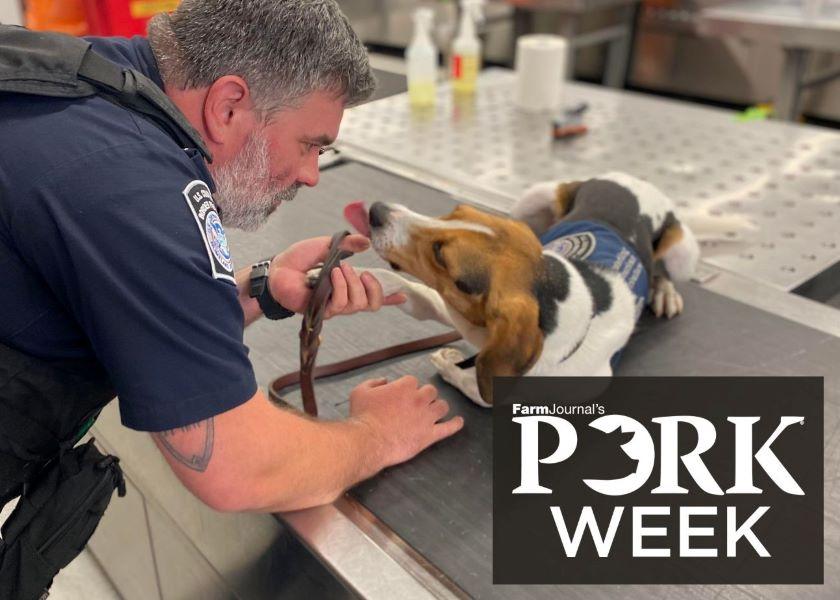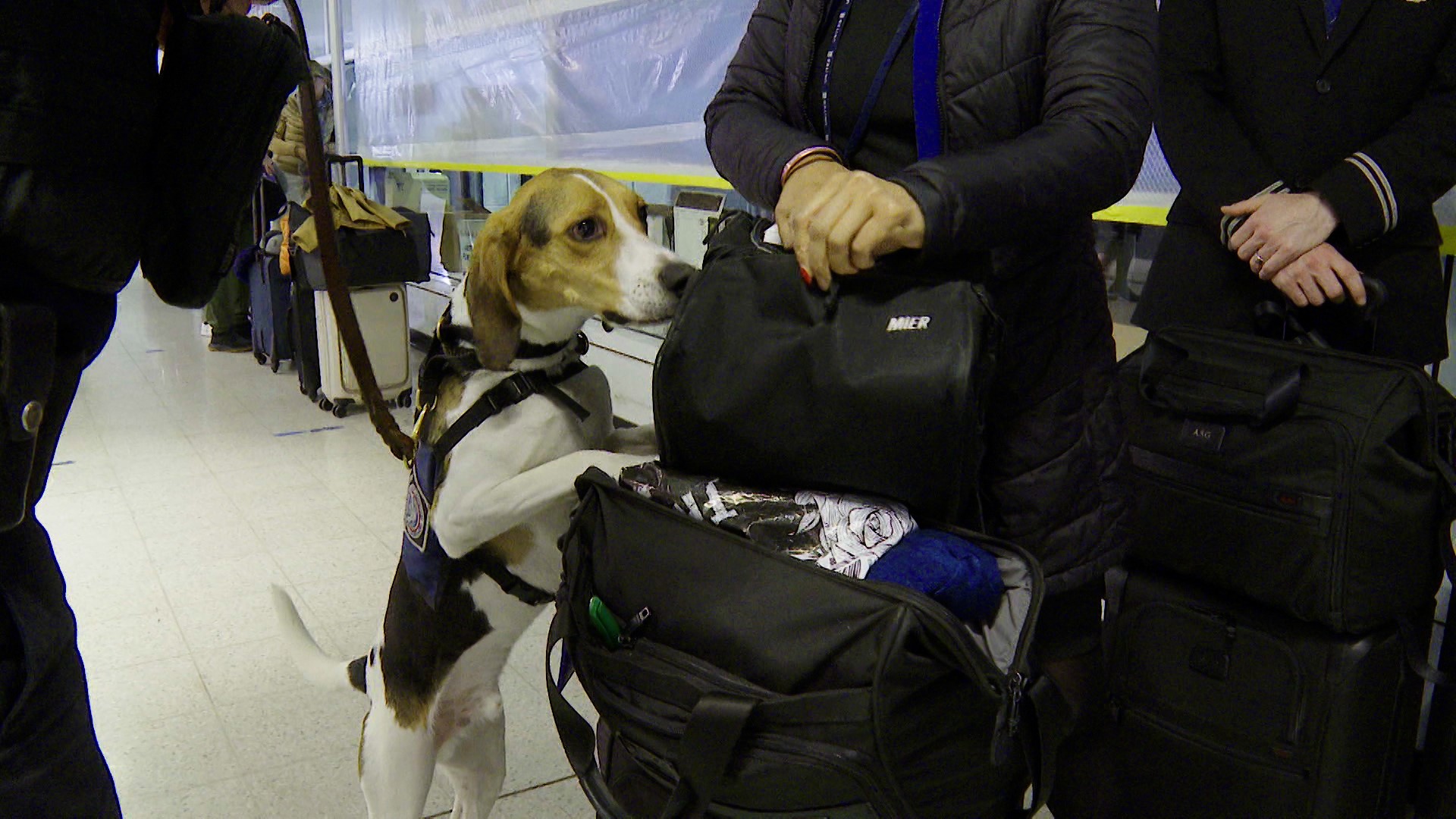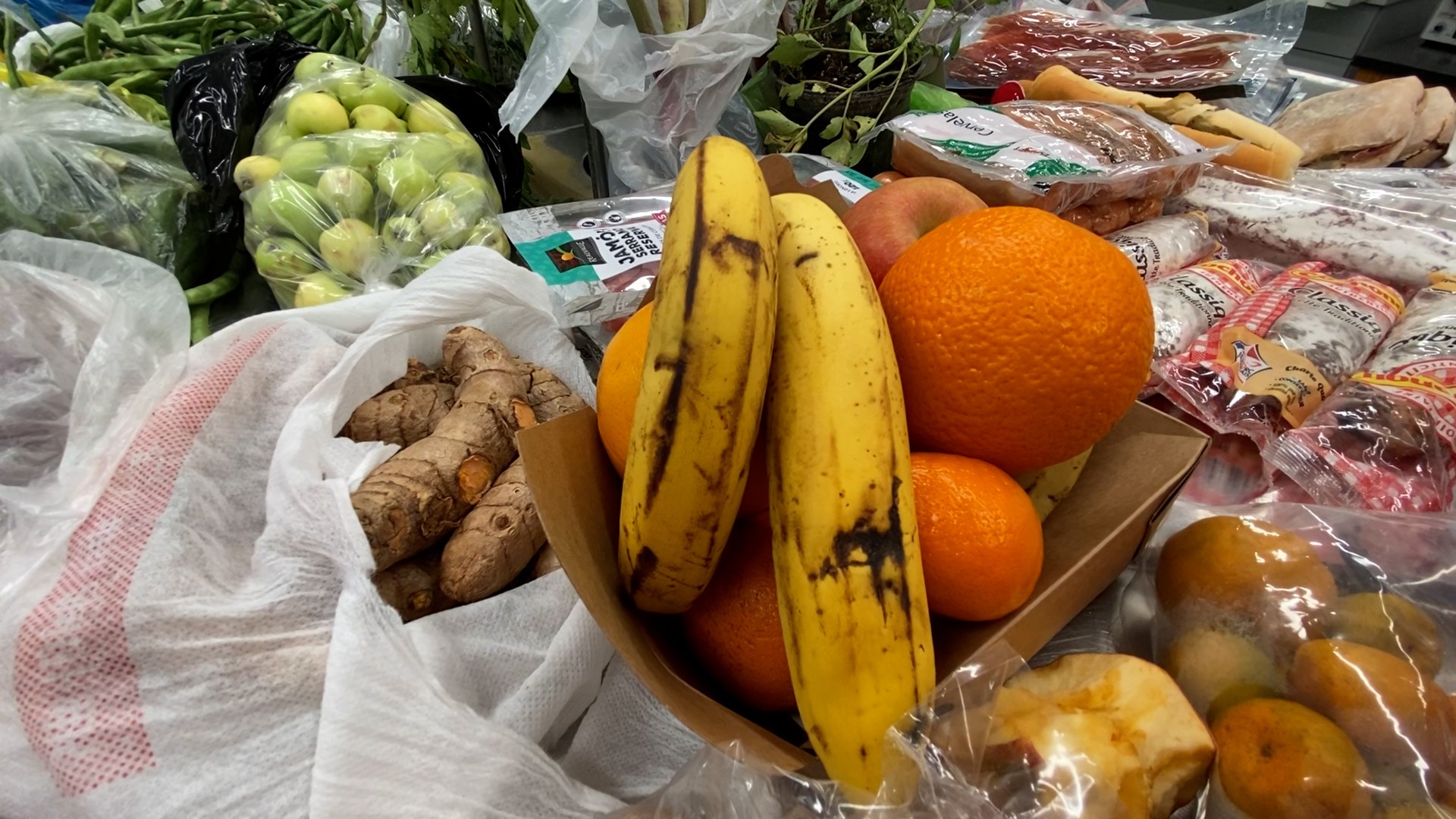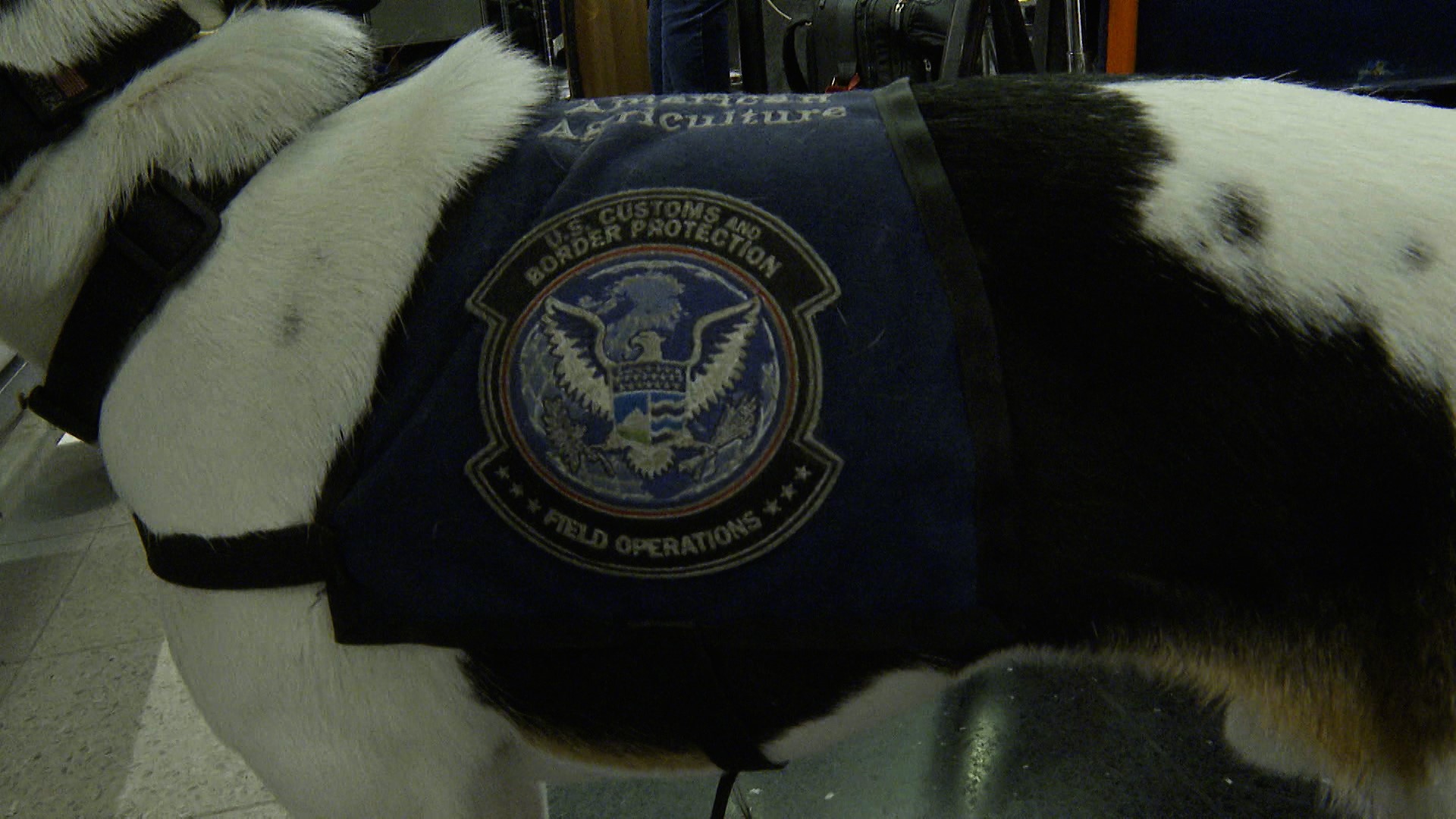Sol the Agriculture Detection Dog: A U.S. Hero

Although he’s motivated by treats and can charm just about anyone, don’t let this dog fool you. Sol is a highly driven beagle who plays a critical role in protecting U.S. agriculture. He is part of the Beagle Brigade and works alongside Martin Schultz, an agriculture specialist for U.S. Customs and Border Protection (CBP).
“Our mission is to safeguard American agriculture, and we do so by identifying the various fruits, vegetables and meats that people are bringing into the country,” Schultz explains. “We employ dogs that can track scents and have them walk around, and then that helps us to identify more of the potential pathways that the pathogens and pests could enter the country via the passenger baggage environment.”
Every day at the Chicago O’Hare Airport, detector dogs and K-9 handlers work hard to protect the U.S. pork industry and all of agriculture from threats.
“The U.S. pork export industry right now is No. 1 or No. 2 in the world. The last number I looked at for last year was $7.7 billion worth of income generated for the country. And if Sol and I let in some pork that has African swine fever, it could devastate pork’s export industry – and that's a lot of money lost.”
Keep Out Dangerous Threats to Agriculture
One little treat is just the motivation Sol needs to help protect and safeguard the country, Schultz says. Sol is trained to be able to identify certain scents of prohibited agricultural products.
“The bigger dogs work in the bigger environments because they're a little bit harder and it's safer for the big dogs there. The beagles work here in the passenger environment because they appear a little bit less threatening than some of the other large breeds,” Schultz said. “The beagles also have an amazing ability to differentiate the various scents that we're looking for.”
On a typical day, Sol spends his time sniffing the bags, passenger's backpacks, purses and checked luggage. Schultz watches for changes in Sol’s behavior. When Sol gets excited about something, Schultz then identifies which bag might contain the prohibited item.

“If he does determine that a scent that he has trained on is there, then he is trained to sit and that's his official alert. It shocks me every day just how well he is able to track a scent throughout the hall,” Schultz adds. “We'll be working a carousel on one side of the hall and he'll pull me over to the other side of the hall just to find a couple of apples or bananas that he is interested in.”
Sol tracks scents throughout the entirety of the corridor, Schultz says. A significant portion of the agricultural products that come into the country does so through the passenger baggage environment.
“Everybody thinks one apple or one banana by itself and one passenger isn't that significant of a deal. However, when every passenger on a 300-passenger flight has two apples and two bananas, that's a lot of apples and bananas,” Schultz adds.
One of this team’s bigger interceptions recently was finding 10 kilograms of pork coming in from Turkey.
“The lady just wanted to bring some sausages for her family here from the homeland,” he says.
Every day the dogs find sandwiches from the airplanes, too. People don’t realize there is anything wrong with bringing the sandwich that they got on the airplane, he explains. However, the meat in the sandwich came from the country where the flight originated, and that meat can’t be verified to meet import standards set by the USDA.
Sol and Schultz are a newer handler team – they are the youngest team at the Port of Chicago. He says they haven't had the chance to build up as impressive of a seizure list or an interception list as some of the other more experienced handlers, but they are working on it.
“The Chicago team is the No.1 team in the nation for agriculture interceptions and agriculture dogs. We have a number of the top handlers and K-9s in the nation for agriculture detection,” Schultz says. “It makes me realize that I have a lot of work to do for me and this young man [Sol] to get up to the level of proficiency that they have.”
Andrew Bailey, Science & Technology, Legal Counsel for the National Pork Producers Council had the opportunity to watch the Beagle Brigade in action last winter and was amazed by the great work the dogs do.
“They had a table full of this enormous number of intercepted meat, vegetables, fruits and things wrapped up,” Bailey recalls. “I was like, ‘How many days of product is this worth?’ The agent told me it was just what they had discovered since they opened. It was only 10 a.m. at the time and they only had two dogs working. It was amazing – the raw amount of work that these dogs do and how important it is.”
NPPC continues to work hard to make sure the Beagle Brigade and detector dog program has the money and authorization to be “fully staffed.”
“We talk about protection zones, regionalization, traceability and response, but really the priority is to harden the border and make sure it never gets here,” Bailey says.
Training Top Detector Dogs
USDA sources the dogs for the program and do the initial training at the National Detection Dog Training Facility in Newnan, Ga. Any additional training that needs to be done, such as obedience or any new odors is all handled by CBP in the field, along with the handler and our canine trainers.
The dogs go through an initial medical and temperament screening. Schultz says less than 40% of the dogs pass that initial portion and an even smaller number make it through the certification process of learning the odors.

Sol received training at the National Detection Dog Training Facility on five key odors, including apples, citrus, mango, beef and pork. Once he was certified to be able to detect those items, he got put into a class. Schultz then went down as a handler for two months of training to learn how to take care of the dog, to identify what his needs are, figure out his alerts and learn the various commands.
“It took four months altogether for Sol and two months for myself for us to be trained and certified to be a team,” Schultz says. “However, the training never stops. There's obviously more fruits and vegetables and meats coming into the port than the odors he is originally certified for. The idea is to get him to start associating the various fresh elements of fruits and vegetables or the spices used to cook the meats and whatnot to get him to start learning some of the other fruits and vegetables that come into the port.”
Sol is a smart dog and taught himself bananas in less than a week, Schultz adds.
“We want him to continue to associate new smells of what he considers a fresh item, and then he gets mouthfuls of treats for it. So, if he smells fresh apples, he'll alert to it. Then he'll be sniffing another bag and he'll say, ‘This isn't a fresh apple, but it smells similar to a fresh something.’ So then he'll alert and he'll give it a shot. And if he's right, and it's the first time that he's found something, I give him a whole mouthful of treats. And then he associates that as a positive interaction and he now can get more mouthfuls of treats for looking around and trying to identify more items that appear fresh or smell fresh to him.”
All of the detection dogs employed by CBP stay at a kennel facility with all the other dogs. This allows them to become one big pack and they're happy together, Schultz says.

“Now, personally, I'm not happy that he doesn't get to come home with me, but it makes sense to me that he doesn't because he would then be doing his job at my house and wondering why he's not getting paid for detecting the items that he is paid to detect. That could give him some confusion or anxiety about doing it here at the airport,” Schultz says.
In exchange for his hard work every day, Sol receives his pay in treats – lots and lots of treats.
“Each dog is unique in what it thinks is a more high value reward,” Schultz says. “We try to provide them with the highest value rewards that we can so the dog continues to be as motivated as he can be to work and to identify the items, because to him he's just playing a game, getting treats.”







